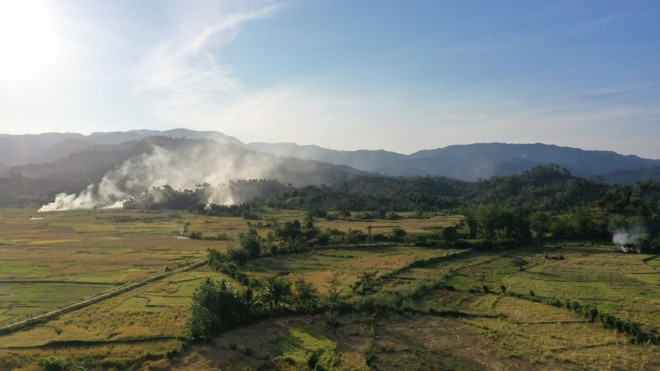
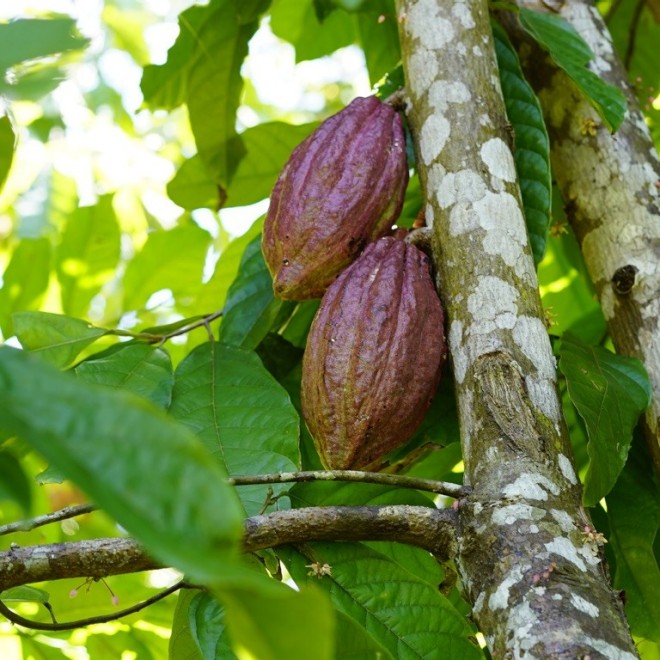
Madagascar is known for its first-class vanilla. However, other fine plant varieties can also thrive there. Mixed farming with special high-grade cacao varieties is intended to create new opportunities for people and the environment in Madagascar.
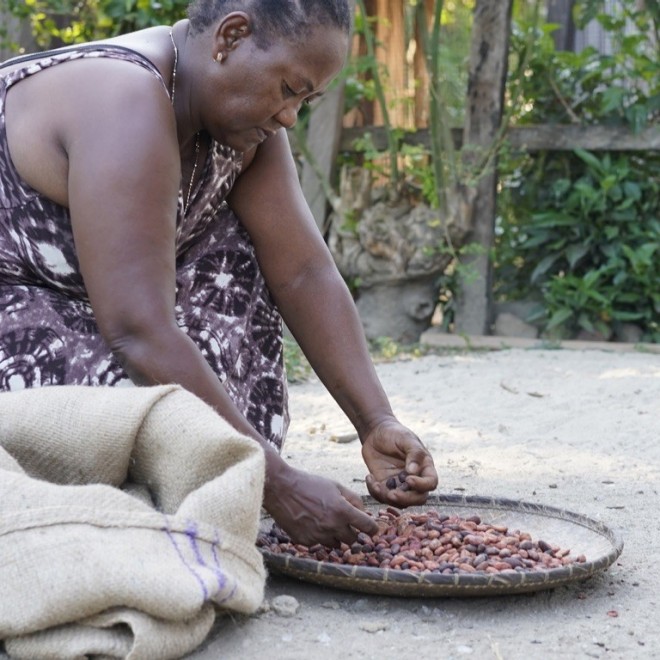
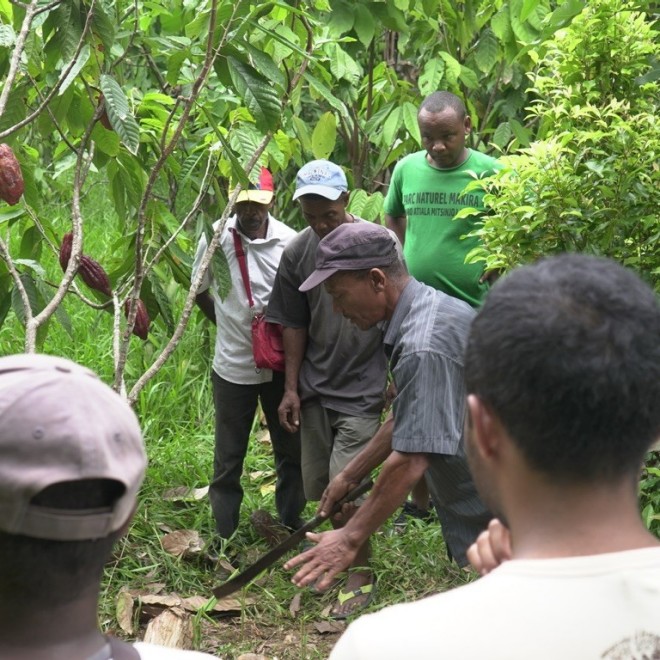

Because of its isolated location in the Indian Ocean, the island is home to a broad range of plants and animals. Many of its indigenous species cannot be found anywhere else. However, its unique biodiversity is under threat from logging of the rainforest. Environmental exploitation is a consequence of the extreme poverty and lack of education among the local population. Economic opportunities for the inhabitants of Madagascar are desperately needed.
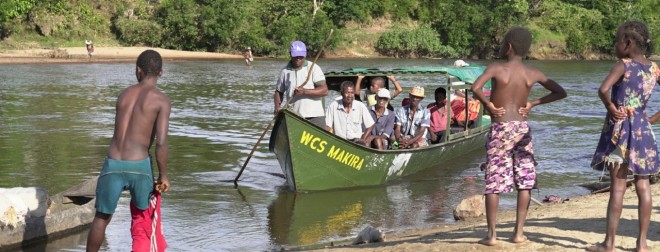
At the moment, hardly any cacao is grown in the area around the Masoala National Park. Small-scale farmers rely mostly on vanilla or cloves derived primarily from monocultures. These plants are only harvested once per year, and the purchase prices fluctuate greatly. The generated income must last farmers for the rest of the year. They therefore pose a serious risk to small-scale farmers if prices drop or the harvested yield falls short.
The MaMaBay project started in 2018 by HALBA and the Wildlife Conservation Society (WCS) promotes the cultivation of sustainable mixed cultures and high-grade cacao in the area around the Masoala National Park. The farmers are encouraged to grow different crops such as vanilla and cloves together with high-grade cacao and trees producing high-grade varieties of wood. While cacao grows in this well-balanced mixed cultivation known as dynamic agroforestry, vanilla also grows in the moist and shady undergrowth. The local conditions are ideal: the plants can better flourish, bear more fruit and are more resistant to diseases, pests and extreme weather conditions.
The work of MaMaBay is ambitious: by 2022, 21 local farmers will be educated as coaches. They will, in turn, mentor and train 200 small-scale farmers. In addition, a total of 90 hectares of monoculture will be converted into mixed culture. Furthermore, the project aims to create sufficient cacao fermentation and drying capacities in the area around the Masoala National Park and a supply chain through which small-scale farmers can distribute their cacao.